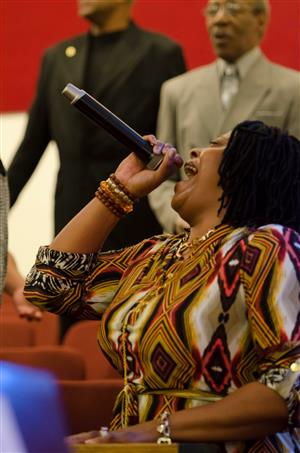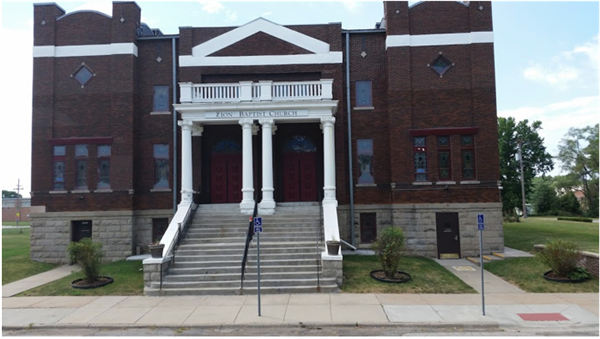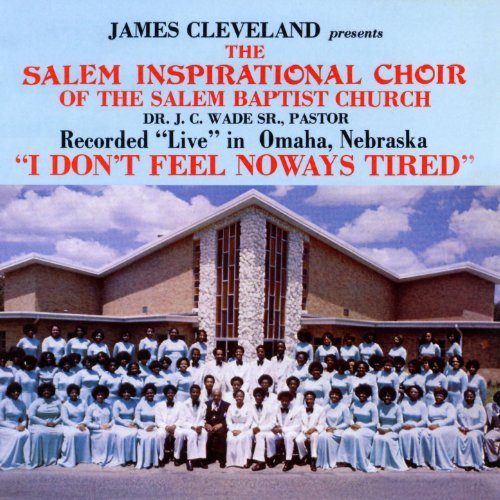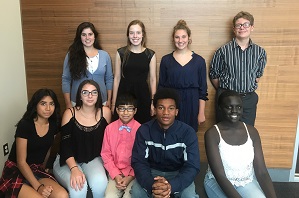Making Invisible Histories Visible
Page Navigation
- Making Invisible Histories Visible
- Lesson Plans and Resources
- iBooks on Omaha and Nebraska History for Primary Students
- Omaha Mapping Projects
-
African American Histories
- African American Artists
- African American Athletes & Facilities
- African American Churches
- African American Civil Rights Organizations - 1950s-1960s
- African American Civil Rights
- African American Contributions to Jazz, Gospel, Hip-Hop
- African American Dramatic Arts
- African American Education - Dorothy Eure & Lerlean Johnson
- African American Educators & Education
- African American Firefighters
- African American Homesteaders
- African American Law Enforcement
- African American Migration to Omaha
- African American Musicians of Omaha
- African American Newspapers
- African American Owned Businesses
- African American Politicians
- African American Social Life
- African American Workers at Omaha's Railroads & Stockyards
- African American Workers at the Naval Ammunition Depot in Hastings
- African Americans in the Civil War
- African Americans in Vietnam
- Charles B. Washington - Journalist and Civil Rights Leader
- Elizabeth Davis Pittman - Lawyer/Judge
- Green Book Omaha
- Marlin Briscoe - Professional Football Player
- Native Omaha Days
- Nebraska's Role in the Underground Railroad
- Sen. Edward Danner - Politician & Civil Rights Activist
- Sudanese Refugees
- Tuskegee Airmen
- European and Asian Immigrant Histories
-
Historic Neighborhoods & Buildings
- 24th and Binney/Wirt/Spencer Streets
- 24th and Lake Streets
- Central Park Neighborhood - 42nd and Grand Avenue
- Dahlman Neighborhood - 10th and Hickory Streets
- Hartman Addition Neighborhood - 16th and Williams Streets
- Indian Hills/Southside Terrace Neighborhood - 30th and Q Streets
- Jefferson Square Neighborhood - 16th and Chicago Streets
- Long Neighborhood - 24th and Clark Streets
- Orchard Hill Neighborhood - 40th and Hamilton Streets
- Smithfield Neighborhood - 24th and Ames Avenue
- St. Mary's Neighborhood - 30th and Q Streets
- Latino Histories
- Music Histories
-
Native American Histories
- Black Elk and John G. Niehardt
- Chief Standing Bear and Susette La Flesche Tibbles
- Dr. Susan LaFlesche Picotte - Native American Doctor
- Native American Education and Boarding Schools
- Native Americans in the Military
- Pre-statehood Interaction of Native Americans and Europeans
- Preserving Native American Tradition
- Restoring the Ponca Tribe
- The American Indian Movement in the 1960s and 1970s
- The Indian Congress at the 1898 Trans-Mississippi Exposition
- The Omaha Native American Indian Tribe
- OPS Elementary School History
- Redlining in Omaha
- Nebraska's Role in the Underground Railroad
- The 1898 Trans-Mississippi Exposition
Gospel
-
How does gospel music inspire hope and connect multiple generations?
-
 The church has been very important to the African American community in Omaha. Within these churches, gospel music has been an essential force, adding movement, energy, personal expression, improvisation, and emotion in another form of preaching to the congregation. North Omaha has experienced no shortage of gospel groups over the decades, from quartets and quintets to choirs and choruses. Its groups have traveled the region and country and gospel groups from surrounding areas have been brought in to join in worship. Gospel music has been and remains a key feature of church services here and the group thanks Cherrese Ashby, Michael Dryver, Delores Matthews, and Willie Mae Williams for offering their assistance in better understanding its role. The photograph shows Cherrese singing at her church, Paradise Missionary Baptist Church.
The church has been very important to the African American community in Omaha. Within these churches, gospel music has been an essential force, adding movement, energy, personal expression, improvisation, and emotion in another form of preaching to the congregation. North Omaha has experienced no shortage of gospel groups over the decades, from quartets and quintets to choirs and choruses. Its groups have traveled the region and country and gospel groups from surrounding areas have been brought in to join in worship. Gospel music has been and remains a key feature of church services here and the group thanks Cherrese Ashby, Michael Dryver, Delores Matthews, and Willie Mae Williams for offering their assistance in better understanding its role. The photograph shows Cherrese singing at her church, Paradise Missionary Baptist Church.Published on August 5, 2017
Video: 7 minute video interviewing Omahans Cherrese Ashby, Michael Dryver, Delores Matthews, Minister of Music and Fine Arts at Zion Baptist, and Willie Mae Williams, about local gospel music.
Zion Baptist Church
-
Being the oldest Black Baptist church in Omaha, founded in 1884, Zion Baptist Church originally met in members’ homes until it finally raised enough money in the 1890s for a building. Though that building was destroyed in a horrible tornado on Easter Sunday, 1913, a new one was constructed to fill the void. Zion is located at 2215 Grant St. in Omaha.
Gospel music has been essential to Zion Baptist Church. Groups over the years have included the Harmony Four and Los Cantores in the 1930s, the Imperial Choir of Zion and the Gospel Chorus of Zion in the 1940s, the Miracle Singing Children in the 1950s, the Miss-Master Choir in the 1960s, and many more, including gospel choirs invited from surrounding areas like Kansas City and Des Moines over the years to infuse worship with spiritual enthusiasm. The students were able to interview Delores Matthews, Minister of Music and Fine Arts, at Zion Baptist, about Zion's musical history and her own career as a musician.

Gospel Quintets and Quartets
-

Gospel quintets (five singers) and gospel quartets (four singers) were harmonized singing groups. They were a popular part of Omaha's African American church music scene beginning in the late 1940s.
The Soul Seekers were a gospel quintet in Omaha started in 1969 by Lumie Woodward Davis and Betty Salter Evans. Betty, a pianist and singer, brought experience to the group, having studied music and performed in groups in Alabama and Detroit. Lumie Davis was friends with Betty’s Mom, Vera Wallace. Lumie shared that she wanted to start a singing group but needed a piano player. Vera suggested Betty and they both decided it could work. Ann Walker and Lois Greer joined, as well as Willie Mae Williams a few months later. Carl James Evans Sr., suggested the name Soul Seekers and when Betty shared the idea with the group, they agreed. The Soul Seekers quintet was formed. Over the years, Frances Wallace, Essie Finley, Helen Pinkard and Tumniel Davis also sang in the group.
The group traveled the United States singing and spreading gospel while inspiring other people to create their own gospel groups. On the first Sunday of every month, they provided music at New Light Baptist Church at 27th and Pratt streets and performed the third Sunday of every month at Mt. Olive Baptist Church at 2425 P St. They performed with professional gospel singer Dorothy Norwood at Tech High School in 1970 and opened for the Brooklyn All-Stars, an internationally recognized male gospel group. The Soul Seekers inspired many women in Omaha to become involved in gospel music. Other well-known singing quintets and quartets in the community include the Loving Four and the Gospel Traveliers. (Flier courtesy of Creola Woodall)
Salem Baptist's Grammy Nominated Record
-

This is a poster for an album recorded by Salem Baptist Church. Salem Baptist Church, the largest African American congregation in Nebraska in 2017, was led by Rev. J. C. Wade, from 1944 to 1988. Rev. Wade played a key role in bringing modern gospel music to North Omaha churches. Salem introduced modern arrangements and electronic instruments. In 1978, under the direction of Dorothea Wade and in collaboration with legendary gospel star James Cleveland, the Salem Inspirational Choir recorded I Don't Feel Noways Tired: James Cleveland Presents the Salem Inspirational Choir. The recording was a huge success and, in 1979, was nominated for a Grammy Award.
Additional Information
-
North Omaha is often said to have “a church on every corner”. Although an exaggeration, these various churches have played an important role for the African American community of North Omaha for decades. Gospel music has evolved over time into a staple of African American communities across North Omaha, the United States, and the world.
Originating through the forced blend of African and European musical traditions during the era of slavery, gospel music has evolved significantly but has never lost its meaning. With strong roots in African spirituals and work songs, gospel music carries the message of perseverance and strength. African Americans used spirituals during slavery and the Jim Crow era to maintain hope in a time of oppression. During the early 20th century, sacred spirituals began to blend with secular music of the time. Thomas A. Dorsey brought blues, jazz, and sacred hymns together to create what we now know of as traditional gospel music. Over the years, gospel music has expanded into other genres of pop culture, such as hip-hop and rap.
Gospel music was first brought to Omaha due to the Great Migration of African Americans north during the early and mid-1900s. The increase in the African American population brought about the creation of multiple African American churches in North Omaha. Salem Baptist Church, led by Rev. J.C. Wade was the first church in Omaha to wholeheartedly embrace gospel music. The Salem Baptist Choir went on to produce a Grammy-nominated track, “I Don’t Feel No Ways Tired”, with James Cleveland. Because of the success gospel music had at Salem Baptist, other congregations began to accept this more modern form of worship music. Today, gospel music is still thriving in the congregations of Salem Baptist, Zion Baptist, Pilgrim Baptist, Faith Temple Church of God in Christ, and countless more North Omaha churches.
Despite the stereotypes and negativity associated with North Omaha, gospel music continues to unite the community with positivity and love. Gospel music can be interpreted differently by each individual, and it has the power to affect each one of us in a unique way. For many residents of North Omaha and for many church goers, gospel music serves not only as a way to worship God but also as a way to express themselves and cope with their daily struggles. Gospel music will continue to adapt with the times in the future just as it has in the past, and it will continue to remain as a stronghold for the North Omaha community.
2017 MIHV Project
Student Reflections
-
"I use to think gospel music was just church music. Now I know that it is also people’s voices and it is a way for people to stand as one."
- Alondra P.
"I thought this program was going to be long and boring but actually it was very fun and we were so busy doing fun things that the 7hrs felt like 2hrs."- Dywan W.
"This program has changed my thinking and has helped me understand more about North Omaha. This is best thing I have ever done in a summer program!"- Matthew R.
"I used to think that North Omaha had a lot of gang activity and violence but I now know that North Omaha is filled with gospel music and different cultures."- Jared P.
"I’ve learned to not judge music, and to actually take time to listen to a genre. I try to understand how it might be involved in a person’s life and how it might affect them."- Destanee B.
Resources
-
Ashbey, S. (2017, July 18). Pilgrim Baptist Church Choir Member.
Boyer, H. C. (1978). Gospel Music. Sage Journals, 64(9), 34-43.
Cattau, D. (n.d.). Omaha Choir Hits Gospel Height. Omaha World-Herald.
Dryver, M. (2017, July 14). Historian and Music Educator.
Jack, T. (2000, 7 1). The Omaha Gospel Complex in Historical Perspective. Great Plains Quarterly.
Matthews, D. (2017, July 18). Zion Baptist Church Choir Director.
Williams, W. M. (2017, July 17). Soul Seekers Quartet Member.
Williams-Jones, P. (1975). Afro-American Gospel Music: A Crystallization of the Black Aesthetic. Ethnomusicology, 19, 373-385.
Research compiled by Dwyan W., Alondra P., Matthew R., Destanee B., Nyapuot J., and Jared P.
The students who worked on the gospel project will attend high school at North High, Bryan High and South High this fall.


